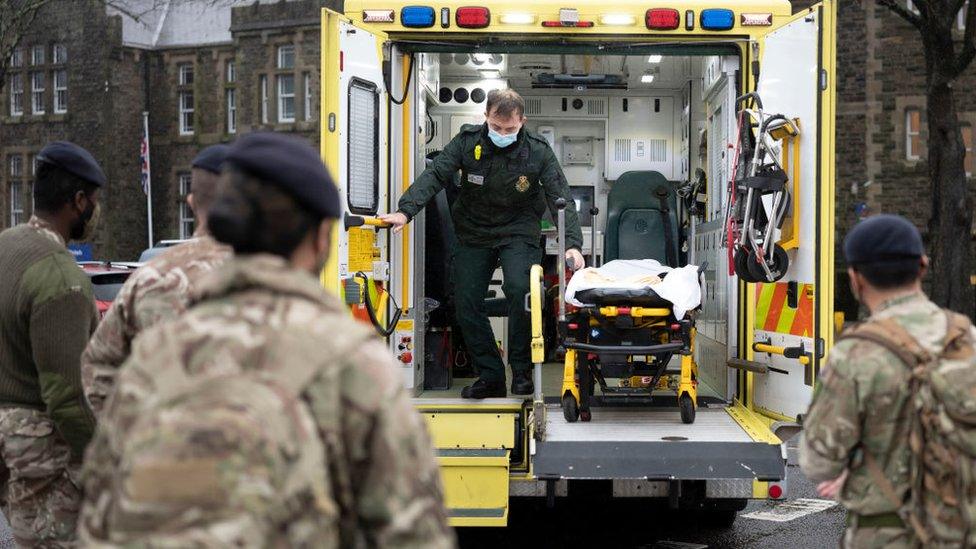NHS Wales: A&E and ambulance performance worst ever - again
- Published
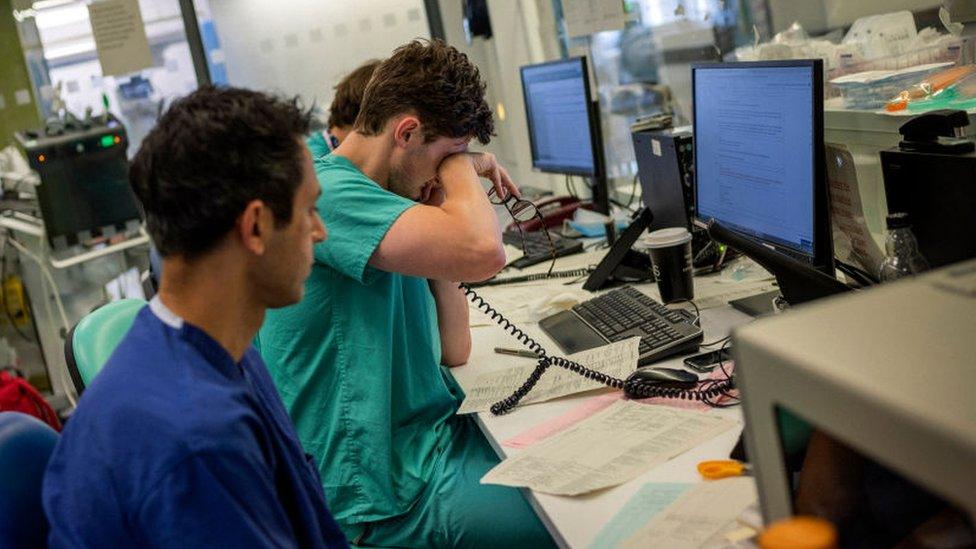
The performance of A&E departments and the ambulance service are the worst on record, while waiting lists have never been longer
The worst ever performance figures have once again been recorded by hospital emergency departments and the ambulance service in Wales.
Figures for October show fewer than 65% of patients spent less than four hours in departments like A&E.
The ambulance service responded to just half of immediately life-threatening calls within eight minutes.
The director of the Welsh NHS confederation said the service was facing "unsustainable pressures".
The statistics also show another growth in waiting lists, with 668,801 people waiting for planned treatment in September - equivalent to 21% of the Welsh population.
Welsh government said while it had invested an extra £248m this year to transform the delivery of services and tackle waiting times, "real progress" was not expected to be seen before the spring.
Dr Suresh Pillai, vice president of the Royal College of Emergency Medicine Wales, said the figures "once again show a worrying further deterioration in performance".
It comes as the NHS Confederation in Wales - the body that represents health boards - warns shortages in the care sector are proving to be a "massive challenge" and increasing pressure on A&E departments and the ambulance service.
According to it's director Darren Hughes, as many as 15% of acute hospital beds are filled with people who are medically fit to leave hospital but are stuck waiting for care to be arranged elsewhere.
A&E
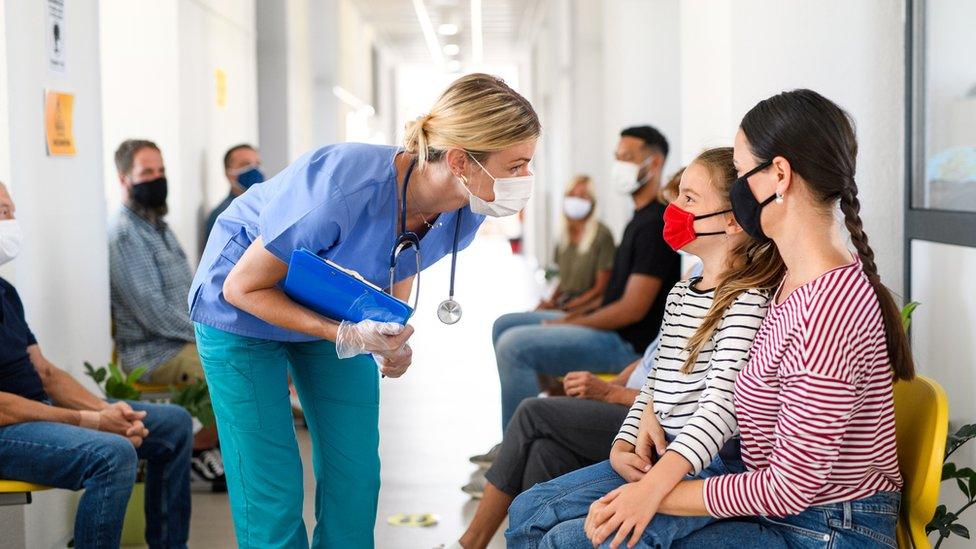
Almost 9,500 people had to wait more than 12 hours in urgent care departments in October
Just 64.9% of patients spent less than four hours in emergency departments at Welsh hospitals before being admitted, transferred or discharged in October.
This was down from 66.8% in September - which was a record - and far below the target of 95%.
The figures also show 9,484 people had to wait more than 12 hours in urgent care departments in October - the highest number recorded and up from 8,485 the month before.
The target is that nobody should be waiting that long.
Ambulance service
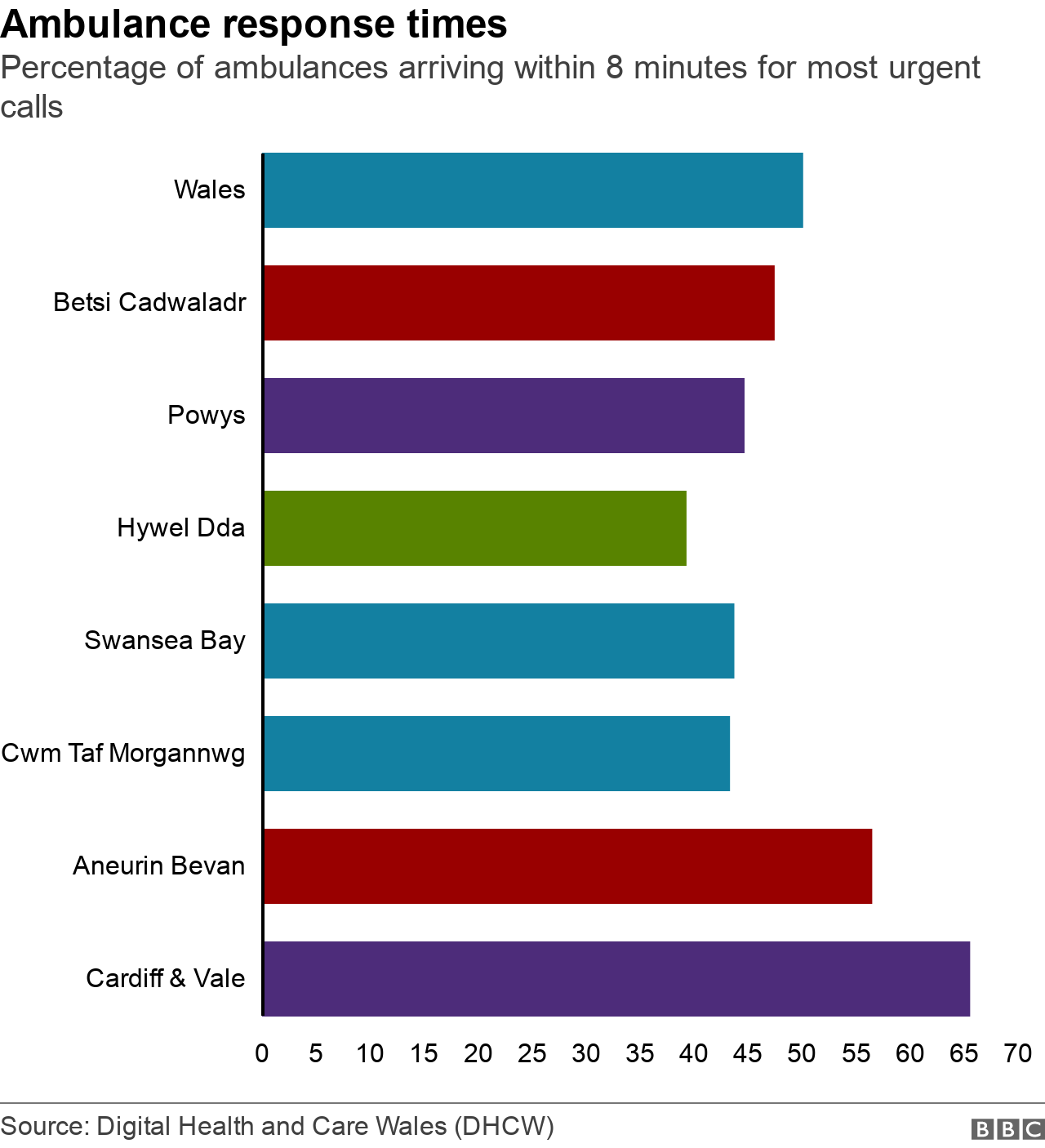
During October, the ambulance service responded to 50% of "red calls" - where a life is at immediate risk - within eight minutes, down from 52.3% in September.
These are the worst monthly response times since new targets were introduced in Wales in 2015.
The target of 65% has not been met for 15 consecutive months.
Last month's HIW report found ambulance crews had to wait more than an hour to transfer patients on no fewer than 32,699 occasions.
Waiting times for planned treatments
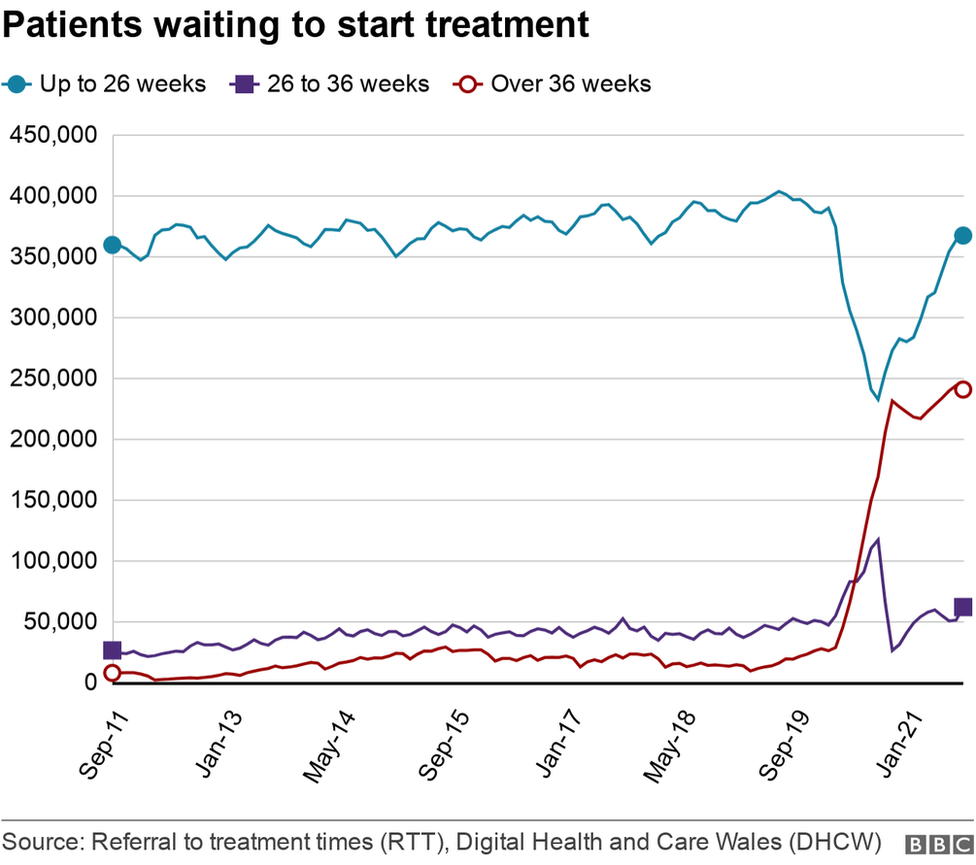
The figures also show there were 668,801 on NHS waiting lists in Wales in September - again, the highest number ever.
This equates to more than 21% of Wales' population.
It has also been revealed that 240,306 people had been waiting more than 36 weeks for treatment.
This is down slightly from the previous month's figure of 243,674, but is more than nine times higher than at the start of the pandemic - with 25,534 waiting more than nine months in February 2020.
'Understand and act'
"The urgent and emergency care system in Wales is facing a crisis and we are only just entering winter. Patient safety is at risk," added Dr Suresh Pillai.
"The government, boards and NHS leaders must understand and act now to ensure that the current crisis does not deepen and lead to more avoidable excess deaths."
Darren Hughes, director of the Welsh NHS Confederation, said: "The NHS in Wales is currently facing unsustainable pressures, from all angles.
"These statistics show the unrelenting high levels of demand the ambulance service and emergency departments are facing, with October seeing the highest number of immediately life-threatening calls made to the ambulance service since records began.
What has the Welsh government said?
A Welsh government spokesperson said: "The latest data shows pressure on our health and care system continues to grow, but our hardworking health and social care staff continue to deliver high quality care when people need it.
"We have invested an extra £248m this year to transform the delivery of services and tackle waiting times, but because of the ongoing pressures and effects of the pandemic we don't expect to see real progress before the spring.
"The ambulance service in Wales, like the rest of the UK, continues to be under great strain, the number of red calls, which are classed as life-threatening, in October were the highest ever on record.
"We encourage people to consider the best options for care, and not necessarily head to their local emergency department."
The spokesperson added: "We need to be honest with the public that winter is going to be extremely difficult. The whole system is working together to find solutions to solve the problems... but the pressure on the system is higher than at any other point during the pandemic."
- Published18 November 2021
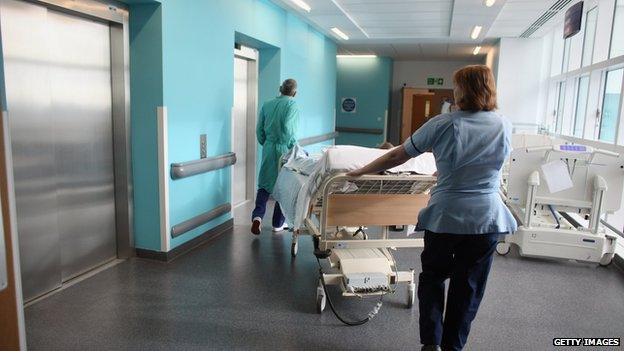
- Published7 October 2021
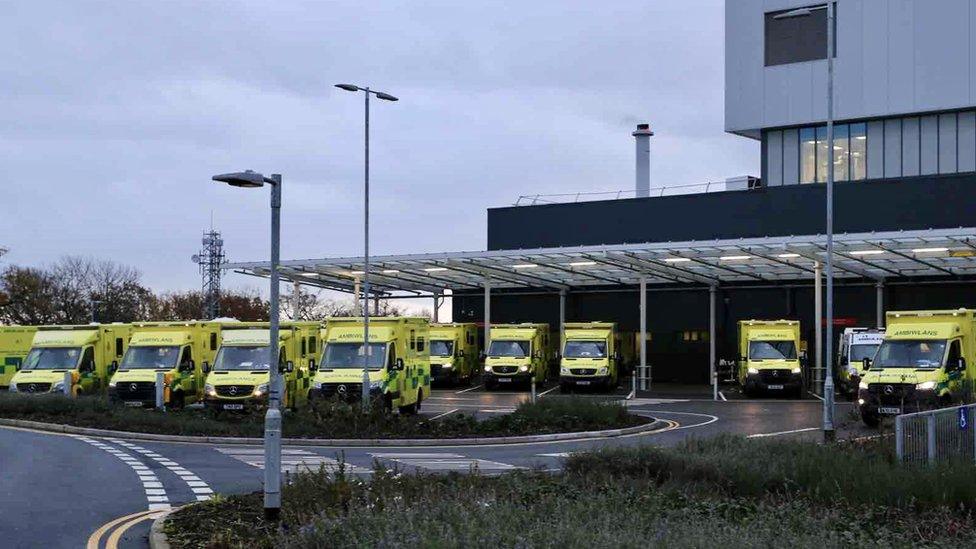
- Published23 September 2021

- Published13 October 2021
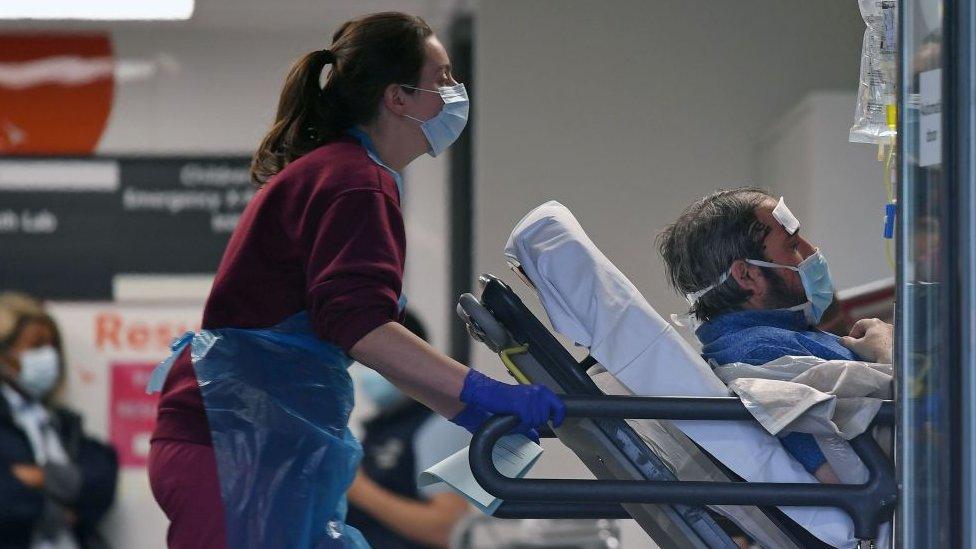
- Published20 September 2021
